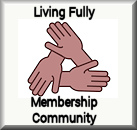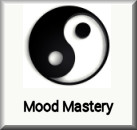It is so interesting for me to hear couples who experience themselves as trying to love their partner and their partner’s experience of feeling unloved. Even though we may make sincere attempts to love from our heart, we can really find difficulty in loving one another in our partnerships. Sometimes, it is about our language of love. For instance, if Bob feels loved when his wife does things especially for him, he will want to do the same. So on a cold morning, he may go outside and warm up the car for Sue. She is thankful, but it is not touching her heart because she feels loved by touching and affection. She practices this on Bob and longs for these gestures from him. They are each missing the prime language of love of their partner. Do you know the prime language of love of your partner? Or of your kids? This month’s newsletter explains the 5 languages of love as put forth by Gary Chapman.
Healthier Marriages Posts
Using Positive Sentiment Override
Being a great partner is not an easy role at times. Especially when things become challenging in your relationship. I have had some clients in a lot of pain recently and they have been acting out that pain by using negativity in their relationships (a natural first response). You may have grown up in an environment where negativity was the prevailing tone of the relationships in your home. This may have progressed to silence in your home where the negativity was still felt loudly. This may even be your personal default position or where you immediately go when there is trouble in your relationship. In fact, this may happen so often, your marriage partner may experience you as having a grumpy mindset.
The experience of that may look something like this in your current relationship. Your expectations, hopes, wishes or parts of your relationship understanding have been let down or hurt. You then ascribe a negative intention to your partner (you do some mind reading!) and you build on that hurt and negative intention (he/she knows I hate it when he/she does that – that just shows he/she doesn’t love me/ how can I trust him /her when he/she…) until walls are built to the point of no feelings of emotional connection.
John Gottman’s marital research showed that couples who do better in relationships are those who are able to have a positive sentiment override rather then a negative sentiment override in these situations. For instance, the hurt occurs and the partner does not immediately ascribe negative intentions but feels the hurt, understands it needs to be dealt with (not buried) but ascribes to their partner more positive sentiments. Some examples of choices of positive sentiment overrides are; we are having a misunderstanding, or something outside of the 2 of us could be impacting what is happening, or the the hurt partner could develop an attitude of curiosity rather then condemnation about what is happening around the hurt. It is allowing the problem to be something other then an outcome of a character defect in one or the other.
What positive sentiment override also helps to do is to allow you both as a couple, to retain the security of your emotional connection, while you work out your differences. When you develop this mindset, you are taking personal responsibility for the relationship and for making a complaint about what went wrong. You are not moving into a negative blaming position where you have no power to change yourself or the relationship. This can be a difficult pattern to change but the outcome is a much better alternative. It moves you towards being a better partner.
Be encouraged! Use this information to weave something potentially life giving to your relationship!
Why strive for Healthier Relationships?
Welcome to the first blog for Healthier Marriages. I would like this blog to be somewhere that you can learn information that works practically for increasing the health and satisfaction of your marriage as well as a place that you can comment about your own relationships and develop some community.
The first topic that seems to present itself is, why strive for a healthy satisfying relationship in the first place? Virginia Satir, a well known researcher in couple and family communication found that people everywhere share the same yearnings. Those yearnings are to be loved, to be found lovable, to be accepted and to be validated. We are relational beings. The way that we best find those yearnings met are in committed relationships. When we are known intimately, with all our gifts and challenges and find those yearnings met in relationship, we have a greater expanded sense of ourselves and feel a sense of groundedness and rootedness in that relationship.
A strong reason to develop healthy relationships is the impact they have on us emotionally, intellectually, physically and spiritually. Poor relationships are correlated to depression and anxiety, to poor sleep, to career challenges, to more accidents, illnesses, death and much more. Recently, quantum biology has shown that we are so relational that our cells recognize each other and react vicariously to the moods and stressors of those we are attached to. This means that each person connected to the committed relationship (ie children) are also reacting to our poor relationships with lowered immune systems and distress.
Generally, the opposite of this is also true. For instance, those in long term committed relationships live longer, have less accidents etc. Those in healthy relationships have emotional energy not given to maintaining an unhealthy relationship to give to crafting a great life. Many studies have shown that a good marriage supports each partner’s development in love, family and work, also a great reason for striving for a healthy relationship.
Many people feel that having an expectation of a healthy, satisfying relationship in this culture at this time is a hopeless idea. However, John Gottman, a noted marital researcher found that couples who had high expectations for their relationship, did indeed have better relationships then those who had low expectations. Maybe your expectations for your relationship are somewhere you can start…
What do you think is one of the challenges that most stops you from having a healthier relationship right now?
Be encouraged! Use this information to weave something potentially life giving to your relationship!





